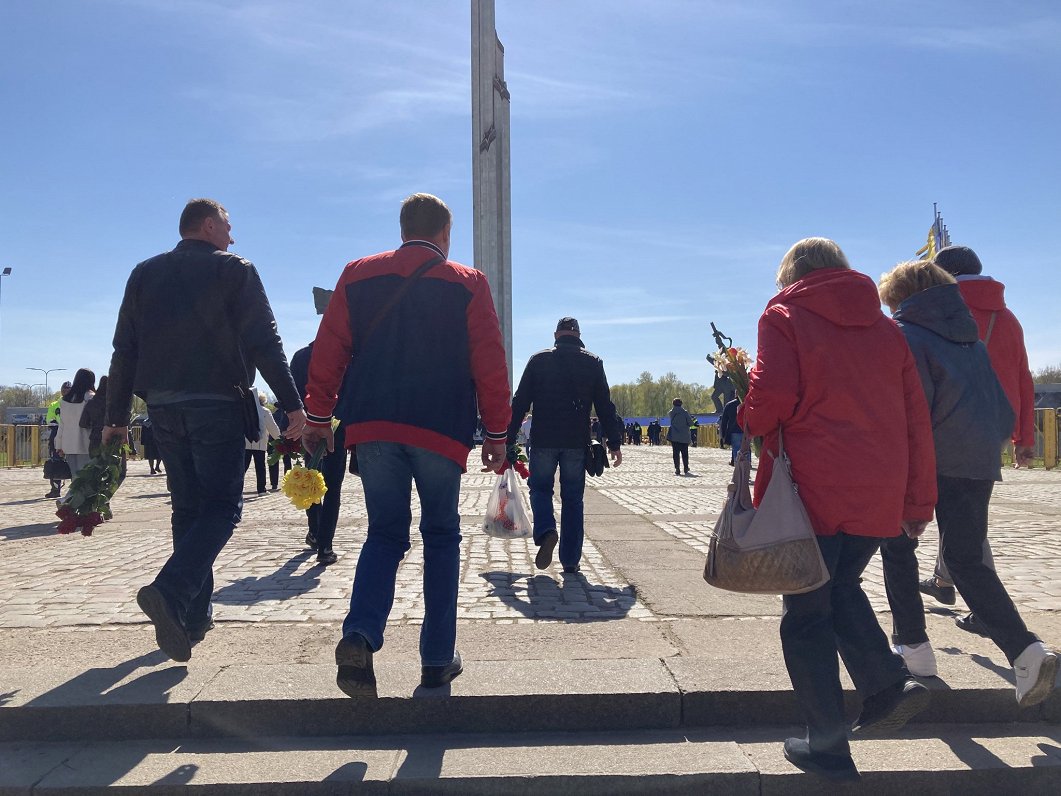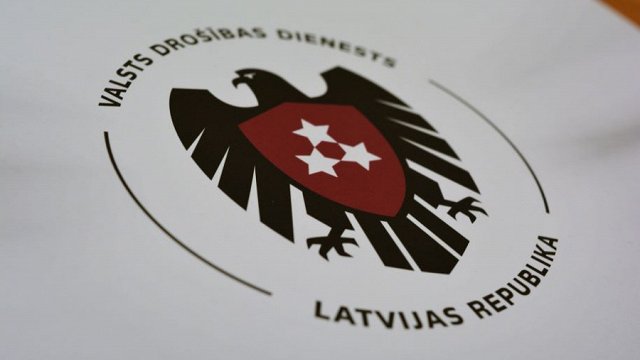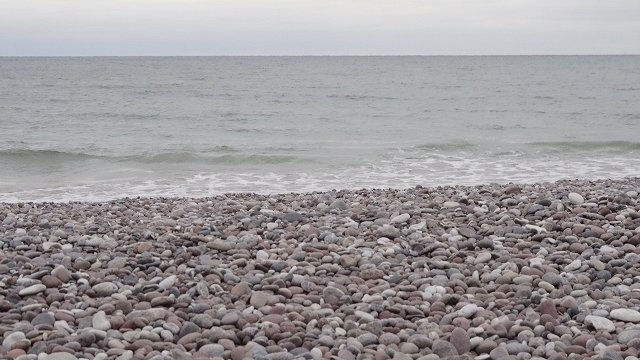In this second piece translated from the Latvian language service's original feature we hear from two more members of the public who participated in the opinion survey. We should stress that these are purely personal opinions. By the nature of such surveys there is no guarantee that respondents are well-informed on the subject about which they are being questioned, nor that they have ever given much thought to it before.
Anything connected with the Soviet occupation period in Latvia, and Russia's aggression in Ukraine, is likely to be a sensitive topic, and we should also advise that some people – perhaps many people – will find some of the opinions expressed below to be insensitive, ignorant and grossly offensive. Nevertheless, we present them here as they do appear to represent the views of certain sections of society, no matter how appalling they might be.
The views expressed do not represent the views of Latvian Public Media.
Artjoms: Monument will be rebuilt one day
Artjoms (38) works in construction. He was born in Latvia and lives in Rīga. His family speaks Russian at home
9 May is a holy day for me and my family. It is a commemoration of the heroes who fought so that we could be alive today. My grandfathers and both my grandmothers lived through the whole war, and they have told
me a lot about it. From an early age, I was interested in this topic, and 9 May has always been a proud day.
The Monument. I don't remember exactly how the celebration at the monument started, but I know that the monument was built with donations from the residents. Every year we celebrate this holiday, but not always directly at the monument, because of my job I don't always get to go. However, I always find it possible to visit my ancestors' graves on this day. My children know exactly what I know about this day, and I want them to be proud of their grandparents, to remember them, to commemorate them.
I was not there on 9 May this year and, to be honest, I did not even intend to go, but after the insult from our government on the morning of 10 May, I got off work, bought a huge bouquet of flowers with the last of my money and went to the monument. I will endure and survive a lot, but I will not allow anyone to insult my family, my children and the memory of my grandparents in this way.
The monument was built to commemorate the 40 million soldiers who died in that war, and Latvians were among them! There is nothing I can do to save this monument, because I have children to think about and I cannot endanger their lives by my actions. If the monument is demolished, it will be reborn - sooner or later it will be put back up. Perhaps in a different form or location, but there will be a monument. But I personally will continue to bring flowers to this place - even if there is no monument.
I woke up early in the morning of 24 February and couldn't believe my ears. Everything was going for it, but I couldn't believe that they would do it. I do not support war, because war is evil. But Ukraine has done everything to make it happen. I feel very sorry for the ordinary people, for the peaceful civilians, for the ordinary soldiers in the Ukrainian armed forces, also for the Russian lads. But I don't feel sorry for the nationalists who have done whatever comes to their mind in recent years... [at this point in the text we have excised a factually incorrect claim made by Artjoms]. My friend who was killed in the shelling near Luhansk in 2015 fell at the hands of these abusers. I cannot support those who call Bandera their hero, who was an accomplice of the fascists during the Second World War.
I am not against those who are actually fleeing from war zones, but I am against those who are simply fleeing... I have not helped refugees in any other way, because my priority is my compatriots - pensioners who are suffering from hunger; children who cannot raise money for surgery or medicine for years. I have helped them and will continue to help them. Because they are members of my family, from my home, Latvia. And when things are so good in my family, in my house, that there is no one left in need, only then I will think about refugees.
I am a patriot of Latvia, I love my country, my city, my district. For a while I was an activist in my neighbourhood, working for the community. And as a patriot, it disgusts me to see those Ukrainian flags all around, because my country's flag is red-white-red. And this is the flag I want to see on buildings. I feel disgusted that a country gives its own citizens - people who were born here - a snub, but invests billions in Ukraine. I have many friends in Russia, including relatives, and friends in Ukraine. And every single one of them supports this special operation. I get my information from different sources - Ukrainian, Russian, European and, of course, from acquaintances. I draw conclusions and form my own opinion from this information.
All my family and friends, including Ukrainians, share my opinion. I can argue with anyone, because I have the information, and I can prove any position I take with facts (either official documents or video footage).
I think that the war in Ukraine is linked to nationalism, and of course the demolition of the monument is also linked to nationalism. Draw your own conclusions. If war comes to our country, it will not be Russia's fault, and the worst thing our patriots will experience is that no one will come to our defence. It's a pity they don't understand.
Ināra: You can't change people like that
Ināra is a teacher by profession.
Yes, I celebrate 9 May but as Europe Day [not Soviet 'Victory Day']. On Europe Day, I try to do the Europe Exam with my pupils, telling them about European values, the origins of the European Union, because I used to be involved in various European funding projects and I have a lot of information on these topics.
Yes, we also celebrate the White Tablecloth Holiday [May 4 restoration of independence day] - usually with a family dinner, when we talk with our grandchildren about important events for Latvia. Today, 9 May is Europe Day for me, which has nothing to do with the end of the Second World War, and that is what I tell my pupils, that Hitler was defeated on 8 May, but the Soviet army went on. I tell it dispassionately, explaining why the descendants of Soviet traditions celebrate 9 May instead of 8 May.
In Soviet times, I know that on 1 May there were workers' marches where my parents had to take part, but I myself only once took part in a workers' march, but it was so chaotic - I got no impression from it, I just had to wait my turn and then almost run to get to the marching place on the waterfront.
What was 9 May for me in Soviet times? In my student years, it was a reason to drink vodka. We young people didn't care why we were doing it - I wasn't brought up in the spirit of Soviet patriotism, so I didn't care
why I was drinking. My friends and I were like this - my friends' parents were among both the repressed and the Legionnaires, including Russian speakers who lived here after the Second World War. But they didn't support the Soviet regime either, they rather thought it was a hypocrisy market that had to be endured, and one friend's father was an Ossetian, a convinced communist, but we never talked about politics. After the collapse of the USSR, her whole family moved to Moscow.
As a child, I used to watch patriotic films and ask: who are the good guys and who are the bad guys, to which my father would reply with a counter-question: from which side are you looking at? And I never understood. My father was deeply intelligent, philosophical and explained that everything develops dialectically. When I had patriotic outbursts of nationalism in my youth, he reminded me of Anatole France's book 'The Revolt of the Angels', where the angels cast out the devils and after a short time took the devils' place and ruled in the same way - nothing changed.
My father, who had been through many different governments and experienced many things while remaining
faithful to science, once also spoke harshly about [former Prime Minister and President Kārlis] Ulmanis. When I was young, I was under the illusion that rivers of milk were flowing, but my father recited a rude verse.
And with this attitude - relativism - my traits of extreme nationalism were suppressed, because in my early youth I was even ready to implement revolutionary ideas - to found circles, just like Lenin we planned to
publish an underground newspaper.
I don't remember anything about the monument, I didn't care about it at all, because I didn't live in Pārdaugava [near the monument], I never even saw the celebrations, because usually I don't go to Pārdaugava. Only in the center, people with flowers are rushing to the trams, and that evoked rather unpleasant feelings. I realised that this thing, this feeling, just has to be swallowed. When I first saw the monument, I thought that the pillar was too long. But I didn't see it at all in my daily life, because my
paths didn't go by it on a daily basis.
I don't remember anything completely - we lived in Soviet times so much that we abstracted from things that didn't concern us, didn't interest us.
There are no more poets, writers and performances like there were then – the Youth Theatre, the Dailes Theatre, Ziedonis, Vācietis, Pētersons, Harijs Liepiņš, Imants Kalniņš, Menuets. We created and lived in our
own republic.
A year or two ago, driving past that monument, I had an eerie feeling. It is not that old pensioners come there to commemorate the victims of war, but that it is a symbol of Russian imperial thinking. There are young people with George ribbons - it was a bit scary. Yes, it is scary, but if we tear it down, we will only sow hatred in the people who care about it. Well, if we are so powerful and NATO is so protective of us, then fine -
let's go for a clash. Unfortunately, it is no longer about empathy or tolerance, but about whoever is stronger wins. And we must be prepared to fight those who think differently living here.
I think that for a lot of people the whole monument demolition thing is just a populist pre-election gesture - why couldn't it have been torn down all along, but only now? Something needs to be done - so let's demolish the monument! They will start with that, not with sorting out economic affairs in Latvia. I understand those who don't want to see it demolished, because you can't change them anymore - you can't change people like that, you can only sow more hatred. I think it is better to keep the monument, for example, it could be redesigned - shorten the pillar, add an American and a Frenchman and rename it the monument of Allied Powers or the All-Nations Victory monument by adding special plaques. What will change when the monument is demolished? The part of society that cared will find a place or a reason to gather and celebrate 9 May.
24 February. As I was watching all the news channels and reading on the internet, I was horrified! I couldn't believe it until the last moment. If you look globally, I think that empire was destined to crumble and now it
has started to do so, and unfortunately the process will be unprecedentedly terrible. The real reason for the war is that in 1992 the empire had not yet collapsed, but was only slightly transformed. War is horrible, but it was a miracle that we lived so long without war. It seems that with war, someone wants to throw us back centuries in development. But this is even more terrifying than the idea that the Ukrainians will win, make peace and we will move on with our lives. The ecological disaster that the war has already caused - with all the fires, explosions of chemical plants, etc.
I took part in one protest against the war at the very beginning. I used to follow the news on a daily basis, but now I am trying to do it less and less, because it has a negative impact on my psyche, although if there is some news, I try to look into it without thinking too much. I think a war in Latvia is completely impossible; but I had the same feeling before he went into Ukraine. It seems unthinkable. My family doesn't have a
plan either. I have no relatives in Ukraine, I have relatives in Russia, however, but I don't communicate with them. My daughter contacted them in the first days of the war and found out that our relative supports Ukraine and prays for Ukrainians. My daughter's relatives and friends live there too, and they thank us in Latvia for helping the Ukrainians so much.
Sometimes my views and those of my family members don't coincide. With my philosophical reasoning, I am called a 'Putinist', but I try to look at the situation globally. Not with slogans: ''Putin - Shit!', 'Zelensky
- Angel!'. I am arguing with my daughter, who is actively trying to help refugees, but I think she is forgetting to take care of her family, her children but is ready to save the world. Overall, it doesn't affect the relationship, as we figure that you don't take offence to those closest to you.
I agree that the monument has a connection with war, because it is a symbol of imperialism. I would say the Soviet empire, which Putin wants to restore by seizing Ukraine.






























